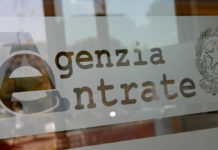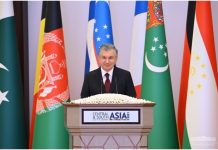Ministers of Foreign Affairs of the Central and South Asian countries – participants of the International Conference «Central and South Asia: Regional Connectivity. Challenges and Opportunities», held in Tashkent on July 15-16, 2021,
reaffirming their commitment to the purposes and principles of the Charter of the United Nations and the international law,
guided by the principles of openness, transparency, equality, mutual trust and respect in the international relations,
noting the need for transit and trade among the countries of Central and South Asia in accordance with international norms and regulations, and taking into account various international and regional initiatives to develop regional connectivity, to increase the efficiency of trade and economic relations among the states of the two regions to realize their unique transport, transit and investment capabilities,
emphasizing the importance of the Vienna Programme of Action for the Landlocked developing countries (LLDCs) for 2014-2024;
considering that the revival of the ancient, historical and cultural linkages among the countries of Central and South Asia will promote cooperation in the field of the formation of effective transport and communication network and trade and economic ties throughout the continent,
aiming at further strengthening the historically close and friendly ties between the peoples of Central and South Asia in order to improve the living standards and welfare of the population of the two regions,
reaffirming their commitment to accelerate collective transformative economic, social and environmental solutions to recover better from the COVID-19 and to achieve the Goals of Agenda 2030 in a Decade of Action;
recognized the importance of the comprehensive and progressive development of ties in areas of mutual interest between and among the states of Central and South Asia on the principles of equality, mutual assistance, and respect for each other’s interests in the spirit of traditional friendship between the peoples of the two regions;
confirmed the need to increase cooperation in the fields of economy, investments, energy and technological innovation, primarily in the sphere of «green» technologies, and recognized the progress that has been made in the implementation of projects and initiatives in these areas;
encourage for cooperation in the development and use of the transit and logistics potential of Central and South Asia through expansion of the transport and communication infrastructure under international agreements and conventions like TIR, and the formation of new international transport corridors that open convenient commercially feasible and secure routes to seaports;
emphasized the importance of Afghanistan’s role as the “regional bridge” for connectivity between Central and South Asia and called for economic development of Afghanistan through implementation of joint regional projects in the global economic relations;
advocated coordination of the efforts of the countries in the two regions on the widespread introduction of promising digital platforms through information technologies in the field of international trade, customs regulation and transport, banking and financial activities, as well as healthcare, education, science and culture, while endeavoring to ensure cyber security for all;
noted the need for mutual exchange of experience of Central and South Asian countries in the study, preservation and strengthening of the historical, cultural, spiritual and national values;
highlighted the importance of establishing tourist routes, covering the ancient, historical and cultural sites of Central and South Asian countries;
expressed their readiness to further contribute to strengthening of the good-neighborly and friendly relations and mutual understanding among peoples, deepening ties in the field of education, science and technology, innovation, tourism, culture, art and sports;
emphasized the importance of sharing experiences and joint development responses to the environmental and natural calamities management issues, while also exploring cooperative initiatives that contribute to the protection of the environment and the ecosystems;
welcomed the development and signing of bilateral and multilateral documents that contain mutual interest and create conditions for strengthening relations between and among the countries of Central and South Asia;
agreed to consider the possibility of jointly drafting a special UN General Assembly resolution on strengthening the Central-South Asia connectivity in accordance with respective national legislations and regulations.
The Ministers for Foreign Affairs of the Central and South Asian States noted, that the High-Level International Conference held in Tashkent provided a unique opportunity for an open discussion of the whole range of topical issues related to the development and strengthening of regional connectivity in Central and South Asia.
In conclusion, the participants expressed their gratitude to the Government and the people of Uzbekistan for their warm hospitality and hosting the Conference.
Tashkent, July 16, 2021























































